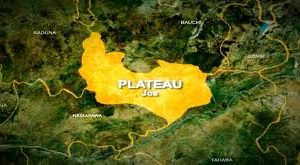The National Office for Technology Acquisition and Promotion (NOTAP) recently, commissioned the 68th Intellectual Property and Technology Transfer Office (IPTTO) in Plateau State Polytechnic, Barkin Ladi, with the aim to further create awareness campaign in the Nigerian knowledge Institutions.
Speaking during the commissioning, the Director General NOTAP, Dr. Obiageli Amadiobi, said that the aim of establishing IPTTOs in the Nigerian knowledge institutions across the Country was to create awareness on the importance of IPR to the economic sustainability of the country.
She said that as a regulatory body, NOTAP observed lack of intellectual property culture in the Nigerian knowledge institutions and because of the critical role IP plays in technology development and economic sustenance of Nigeria, the Office in collaboration with the World Intellectual Property Organisation (WIPO) in 2006, initiated the establishment of IPTTOs in the Nigerian knowledge institutions.
According to the press statement signed by Mr. Raymond Onyenezi Ogbu of the Public Relations and Protocol Unit, that NOTAP was primarily established to regulate the inflow of foreign technology through the registration of Technology Transfer Agreements, with the responsibility to encourage the efficient development of locally motivated technologies.
While carrying out these responsibilities, the DG said the Office observed a weak intellectual property system in the knowledge institutions and for a Country that is seeking for a place as a major player in the global IP ecosystem, the situation was unacceptable, hence the need for the establishment of the IPTTOs.
Dr. Amadiobi stated that being knowledgeable about the importance of IP was critical to the Nigerian Universities and Polytechnic communities as knowledge institutions are the behalve of research activities.
“In the advanced societies, knowledge institutions create IP assets that generate funds for the institutions, where such institutions, contribute in problem solving in the society by cunning out technically skilled young manpower that can frontally change the economic narrative of Nigeria and put the country on the path of economic sustainability.
“Knowledge institutions should engage in market and demand-driven research, instead of conventional research for the purposes of publications and career progression.”
